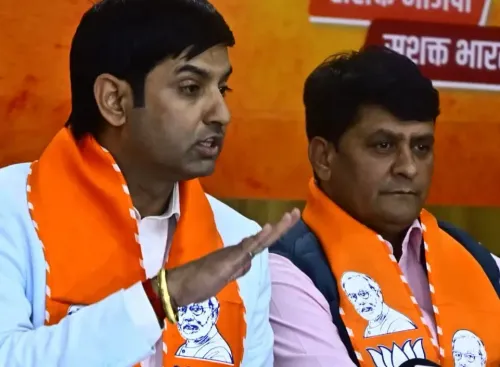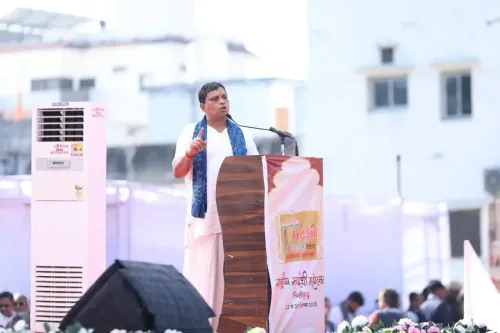Is the Termination of Arbitration for Default an Award? Delhi HC Rules!

Synopsis
Key Takeaways
- The Delhi High Court ruled that a termination order for default is not an arbitral award.
- Such an order does not address the rights or obligations of the parties.
- Compliance with procedural requirements is essential in arbitration.
- Section 25(a) allows for termination due to default.
- Future arbitration cases may be influenced by this ruling.
New Delhi, Oct 24 (NationPress) The Delhi High Court has determined that an order terminating arbitral proceedings due to a claimant's default “does not and cannot qualify as an award,” as it fails to ascertain the rights or obligations of the involved parties.
A single-judge Bench led by Justice Jasmeet Singh made this observation while allowing petitions submitted by Mecwel Constructions Pvt. Ltd. against GE Power Systems India Pvt. Ltd., which sought to resume arbitration proceedings that were halted due to the non-filing of claims and the non-payment of arbitral fees.
The conflict stemmed from subcontracting agreements related to the erection, testing, and commissioning of turbine and generator auxiliaries at various thermal power projects.
GE Power had initiated the termination of Mecwel’s contracts in 2022 and 2023, subsequently leading to arbitration following a previous order from the Delhi High Court. However, the arbitrator closed the proceedings under Section 25(a) of the Arbitration and Conciliation Act after Mecwel did not file its statement of claims or pay its share of the fees.
While the arbitrator provided a “window of opportunity” for compliance, the proceedings were ultimately terminated. GE Power contended that the termination order constituted an arbitral award, thus only challengeable under Section 34 of the Act.
Justice Singh refuted this argument, stating: “An order closing the proceedings for default does not and cannot amount to an award as it does not address the rights of the parties before the Arbitrator. Such an order merely concludes the arbitral proceedings due to the claimant’s failure to file the statement of claim and does not entail any adjudication or determination of the rights or obligations of the parties.”
The Delhi High Court emphasized that for an order to be classified as an award, it must resolve an issue that is part of the substantive dispute between the parties—either conclusively or on a temporary basis.
It further stated, “An order under Section 25(a), being procedural in nature and not addressing the substantive issues between the parties, lacks the fundamental characteristics of an arbitral award.” Upon allowing the petitions, Justice Singh directed that arbitration proceedings between Mecwel and GE Power “shall proceed before the Arbitrator appointed by this Court as per the order dated 08.01.2024.”










